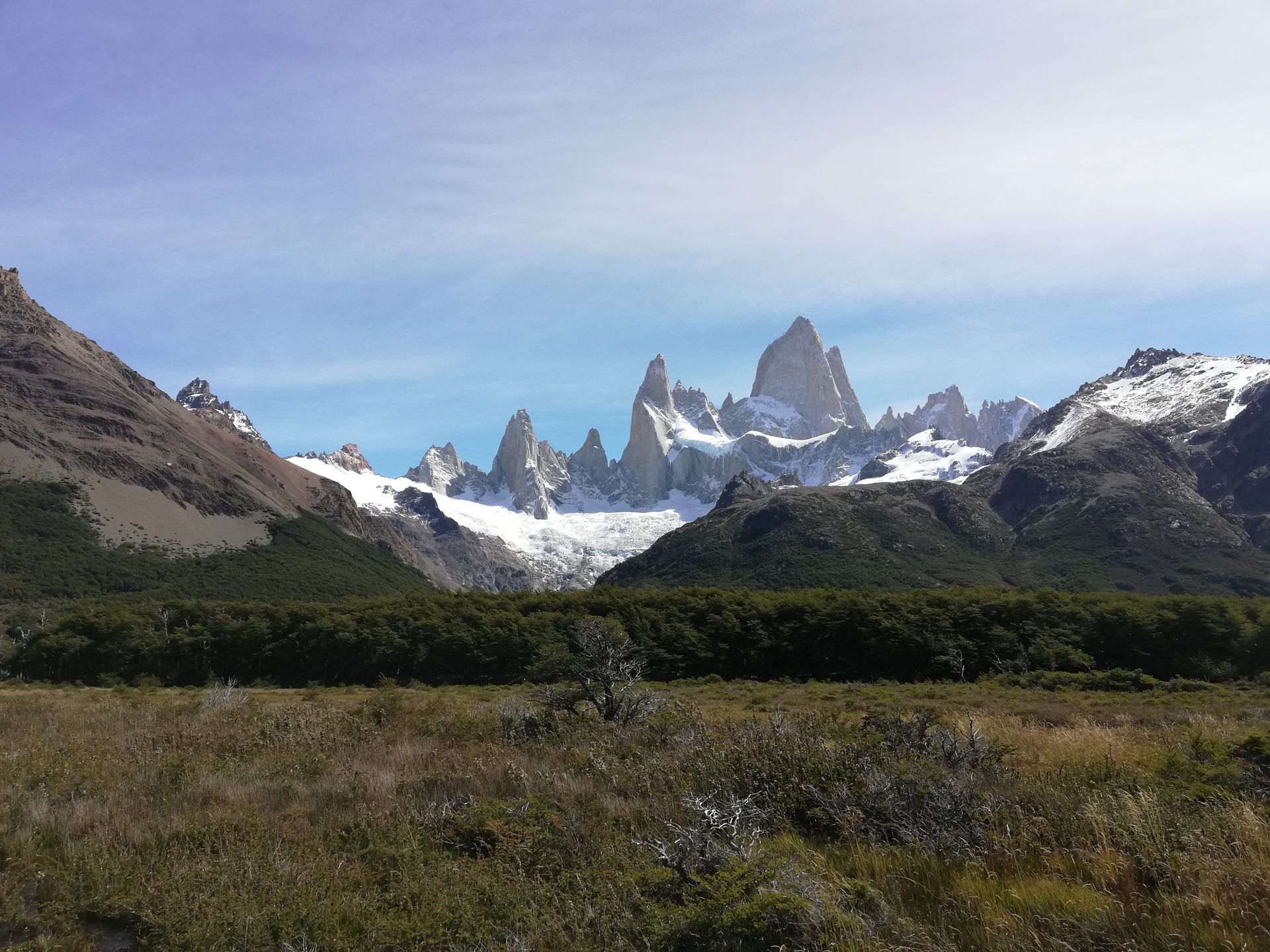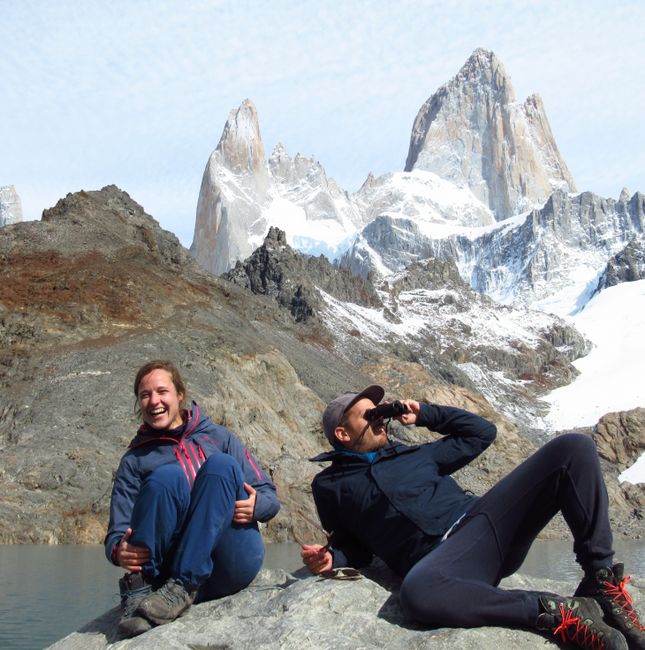F: South Bolivia (Salt Flat, Andean Lagoons, Deserts, Licancabur)
ຈັດພີມມາ: 19.12.2019

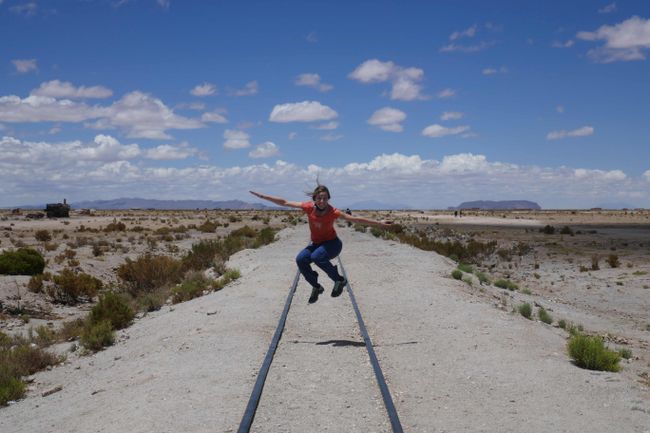
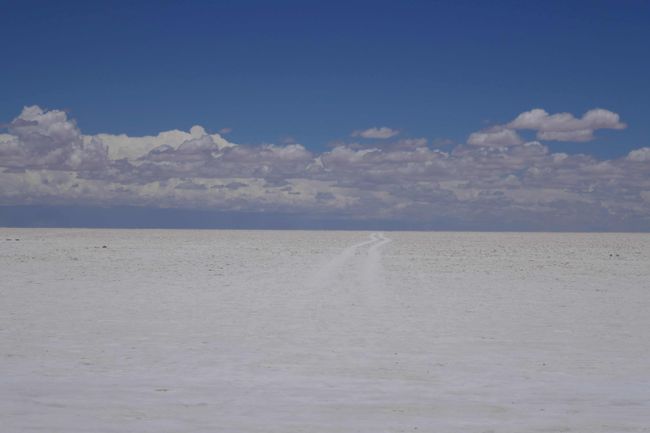
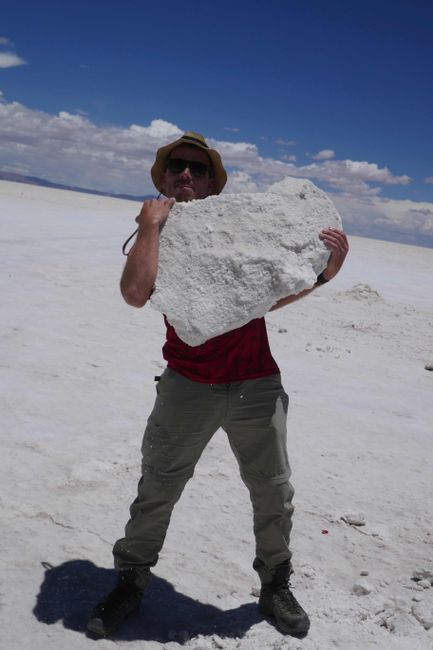
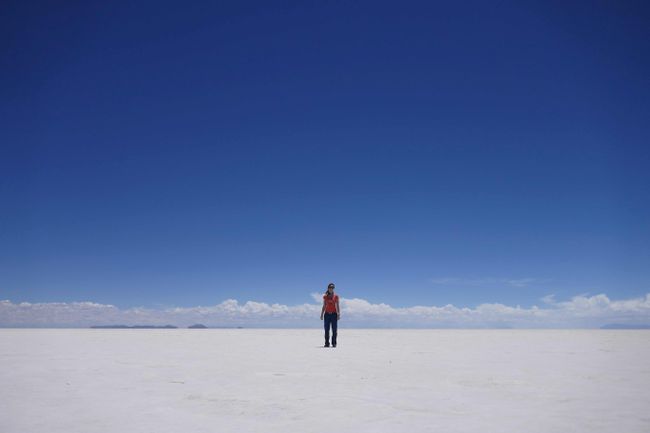
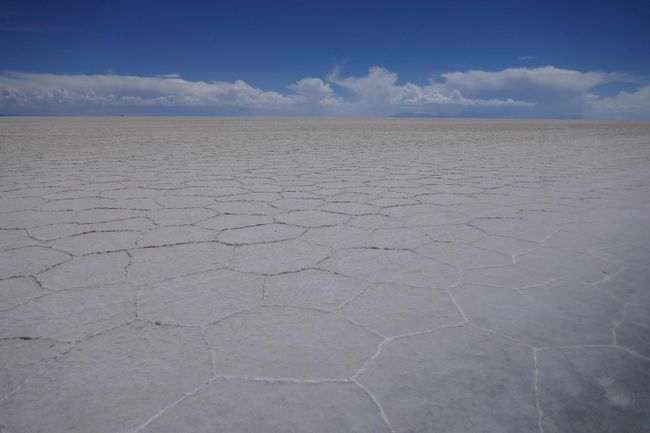
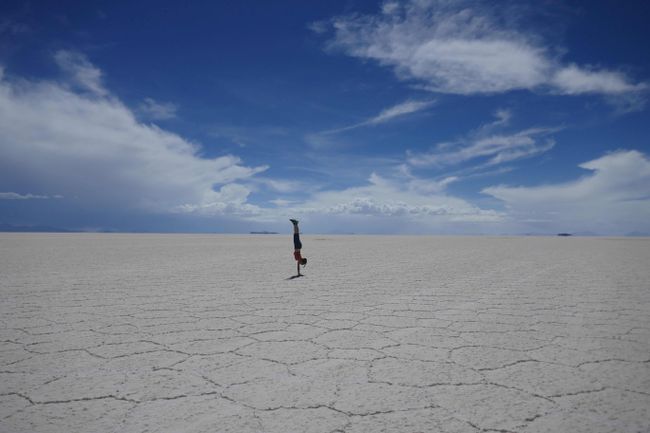
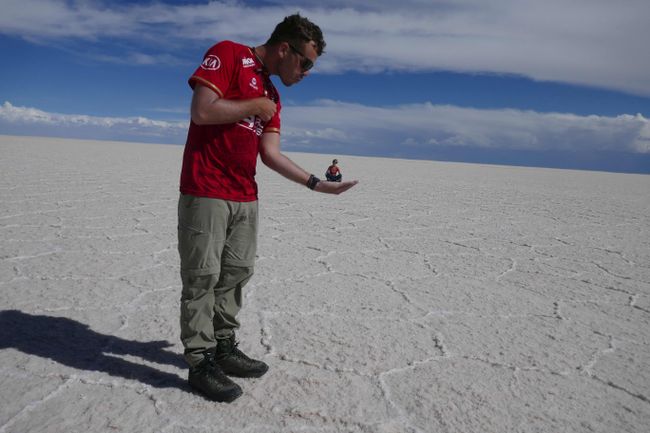
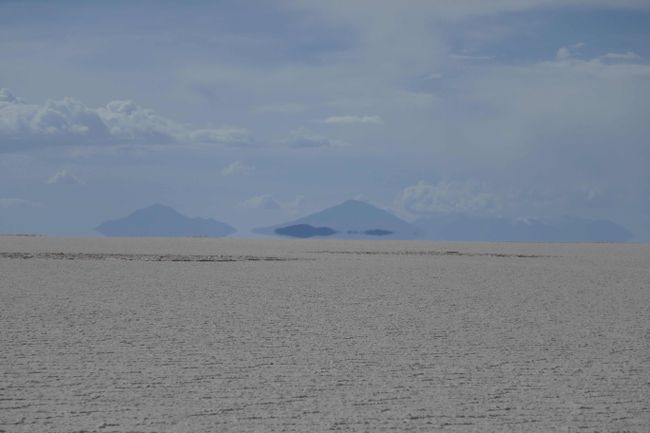
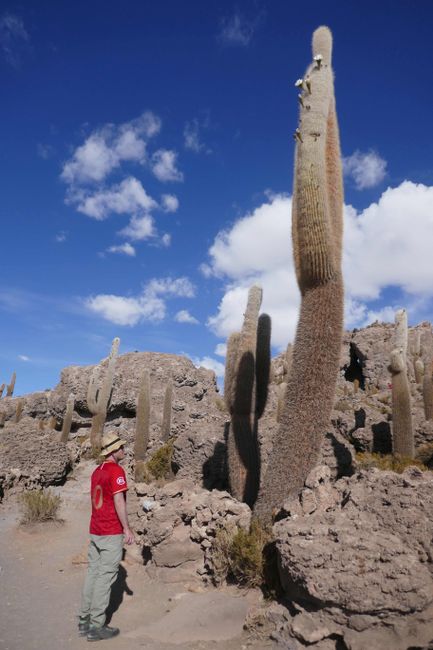
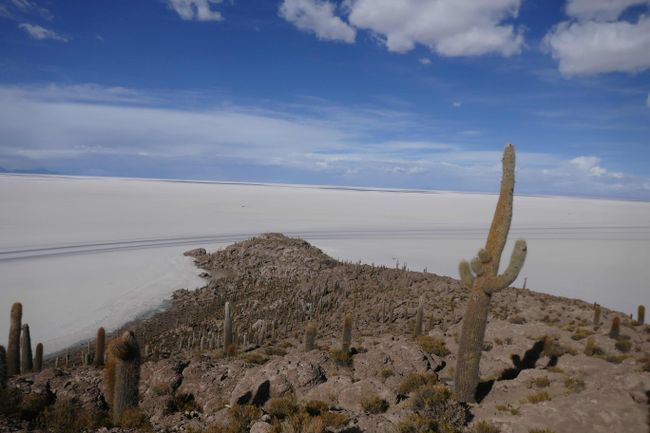
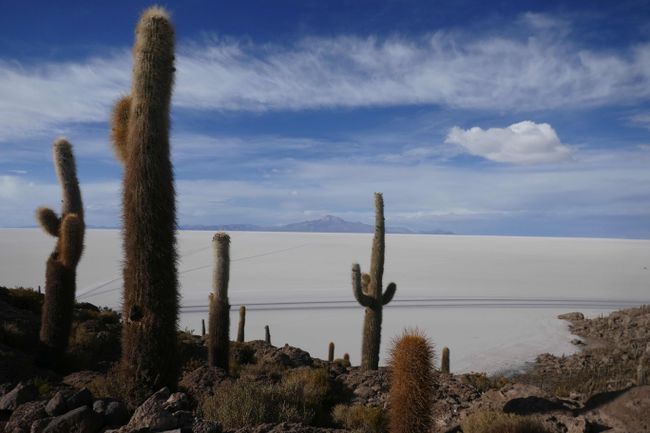
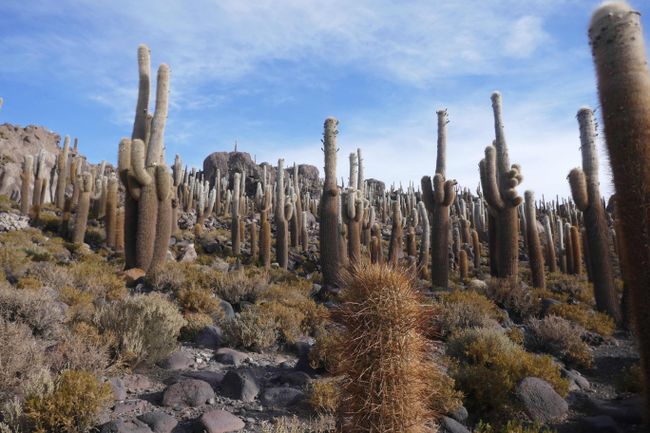
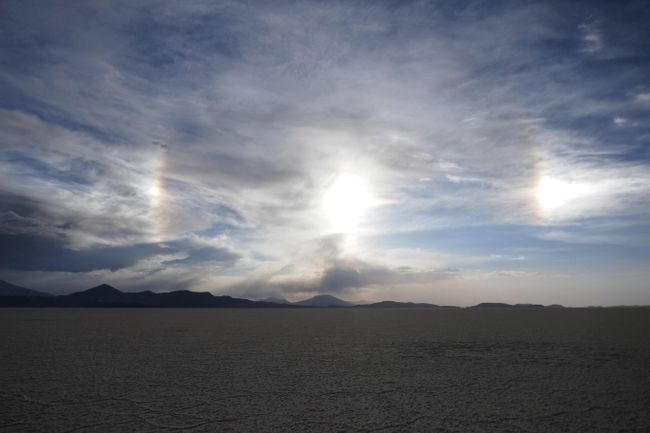
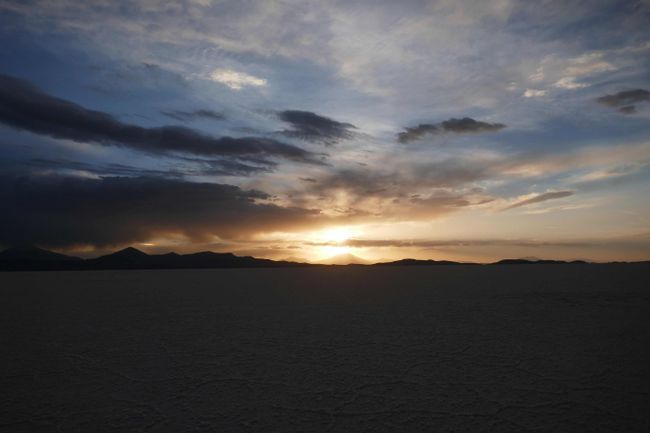
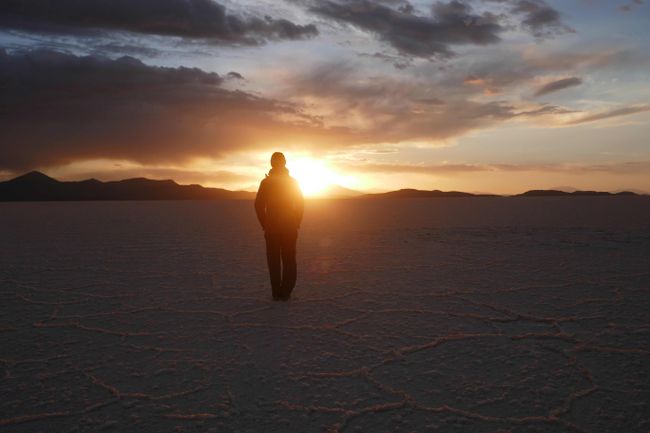
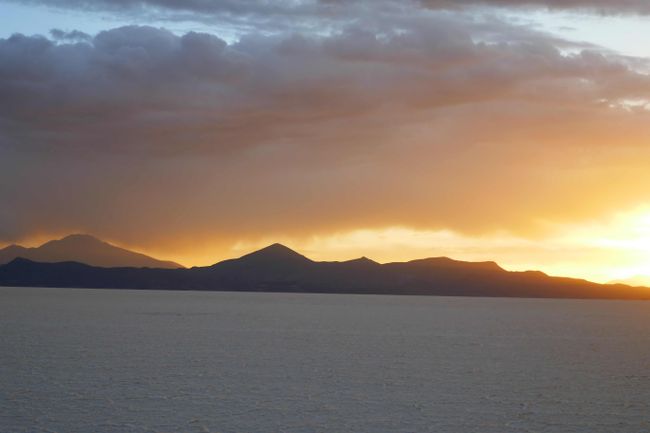
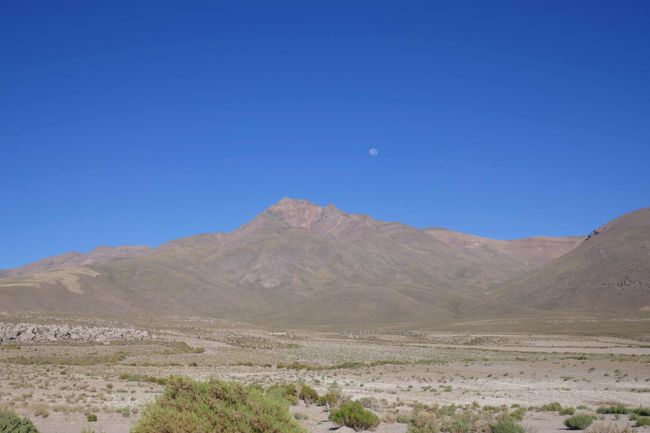
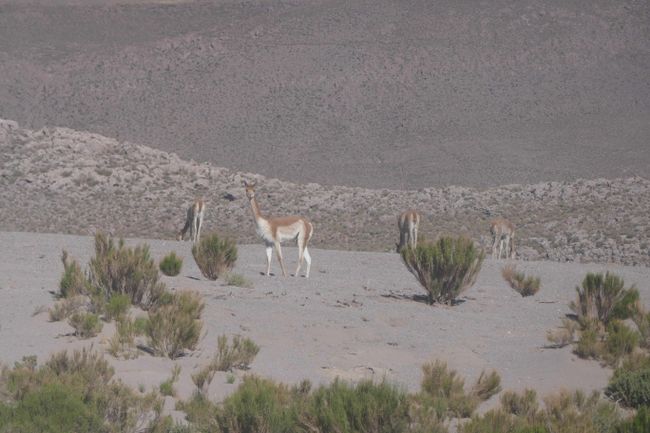
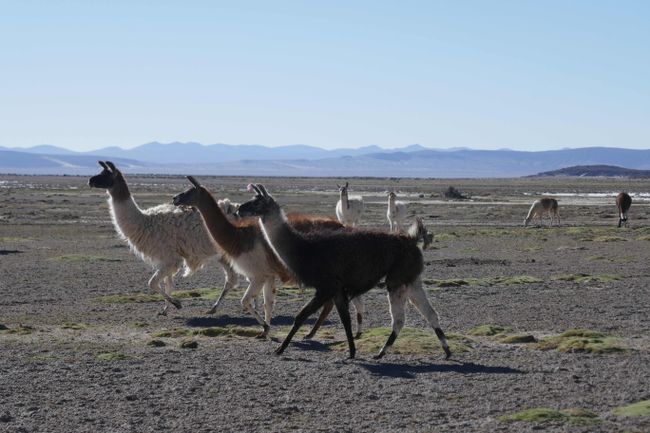
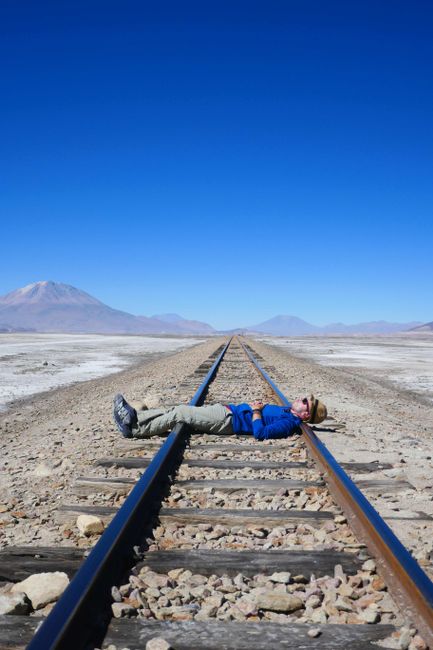
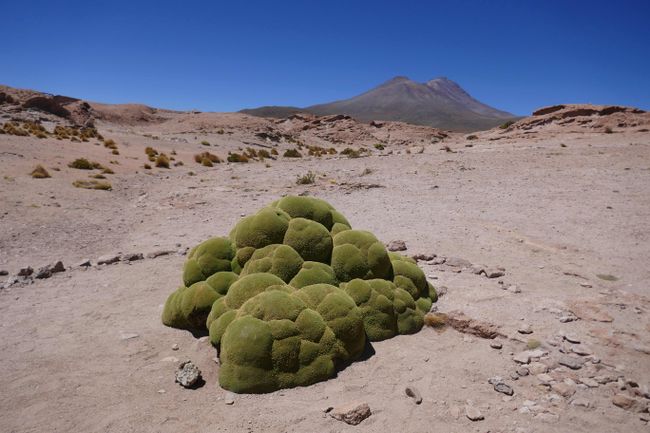

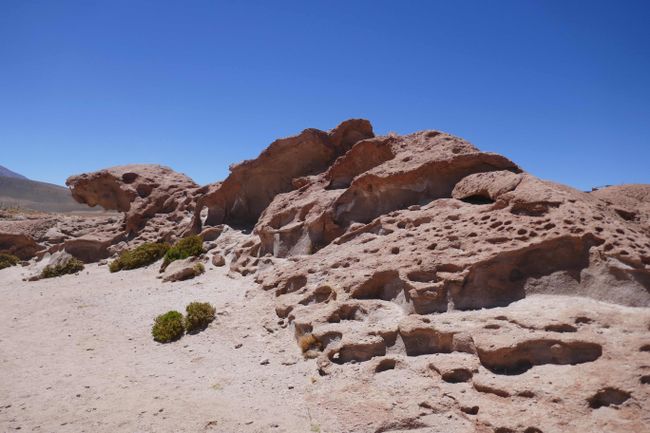
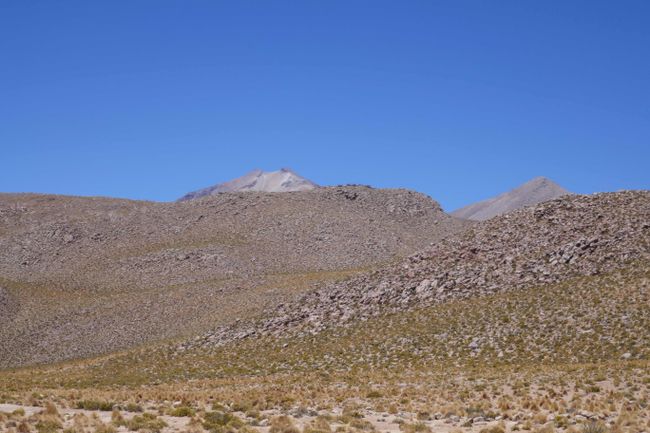

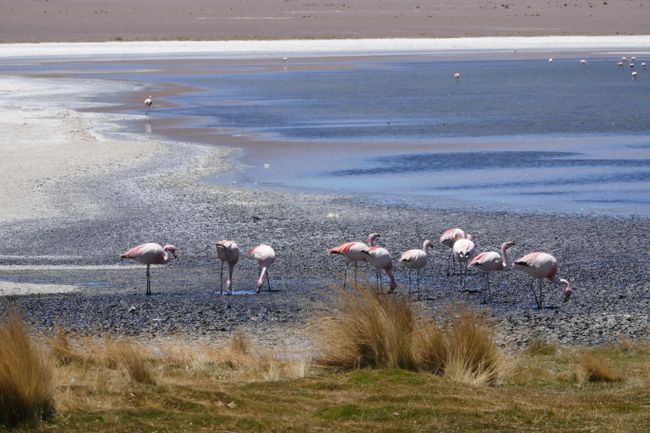
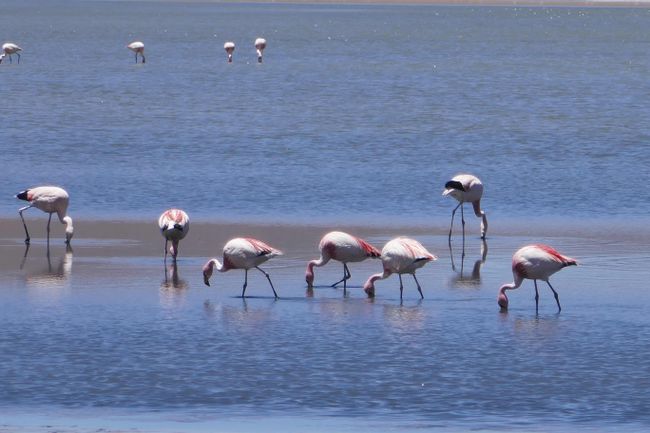
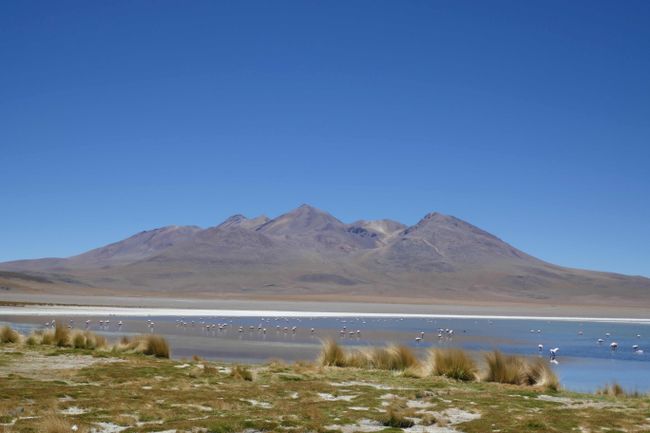
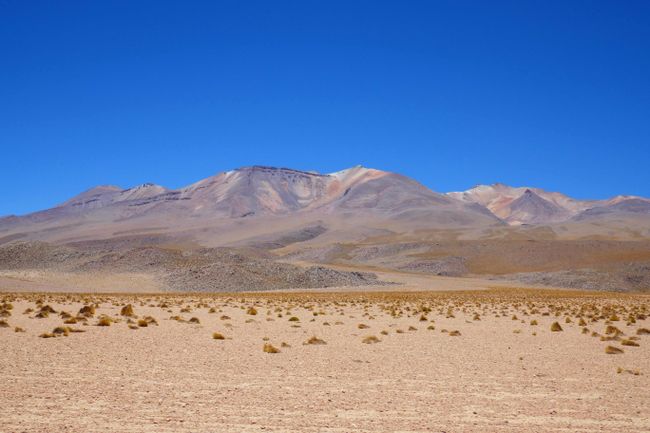
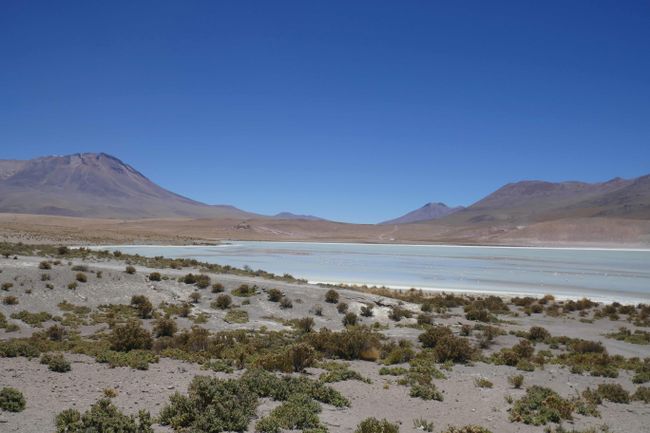
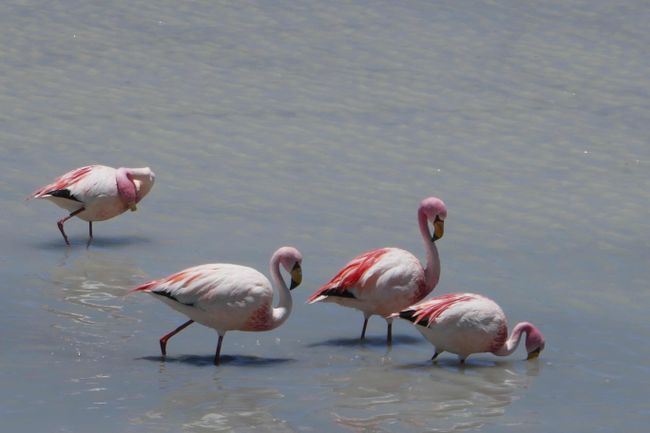
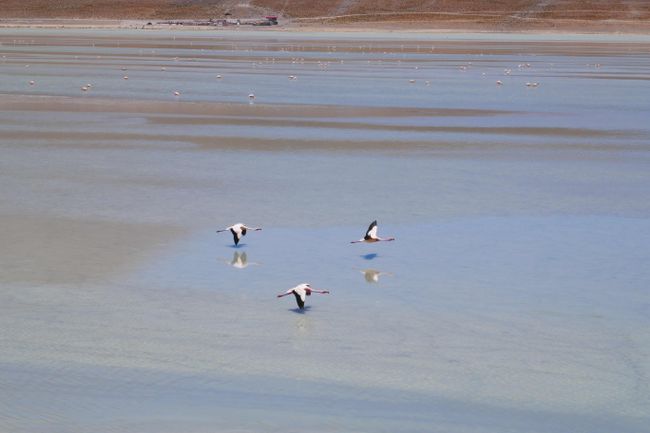
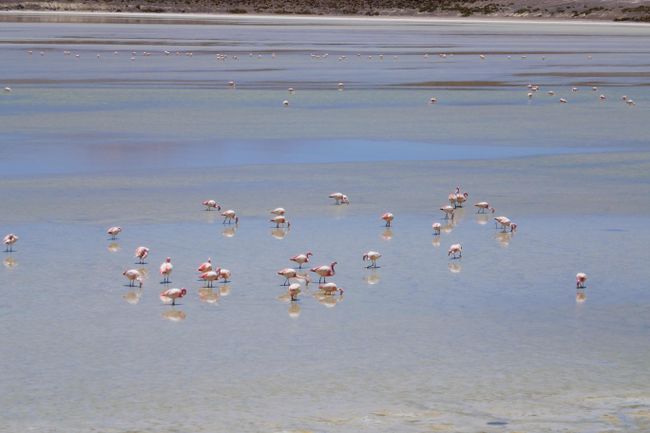
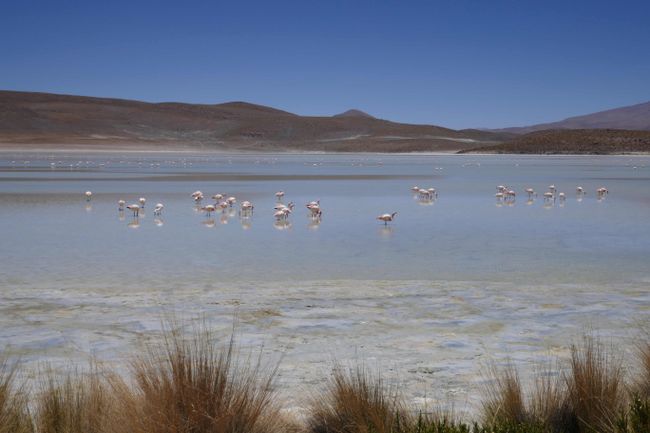
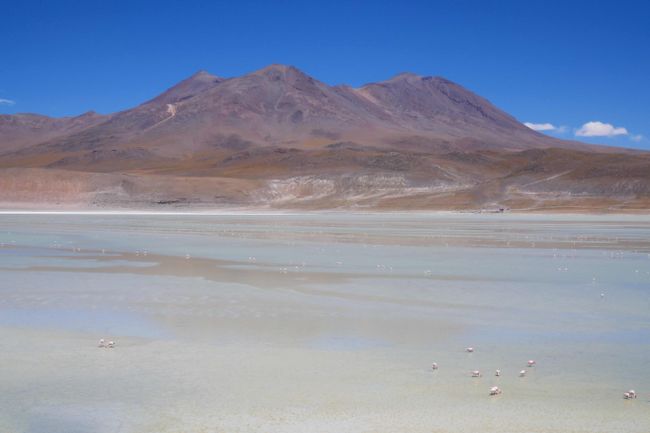
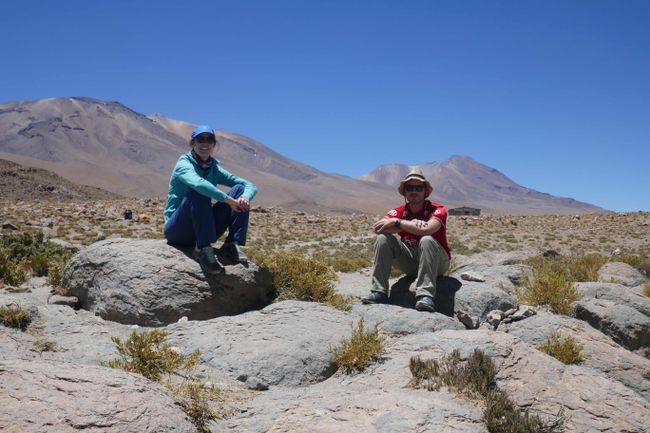
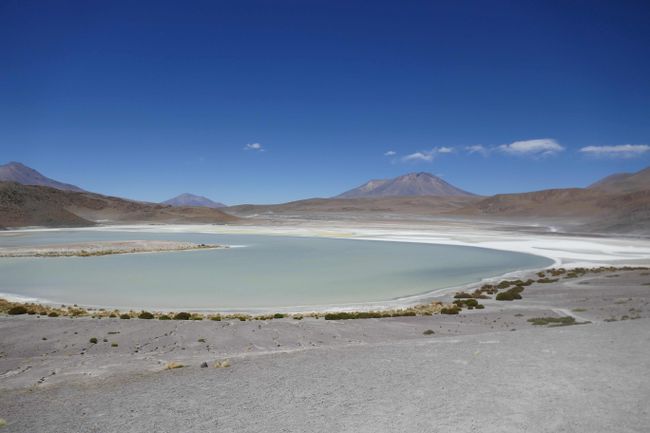
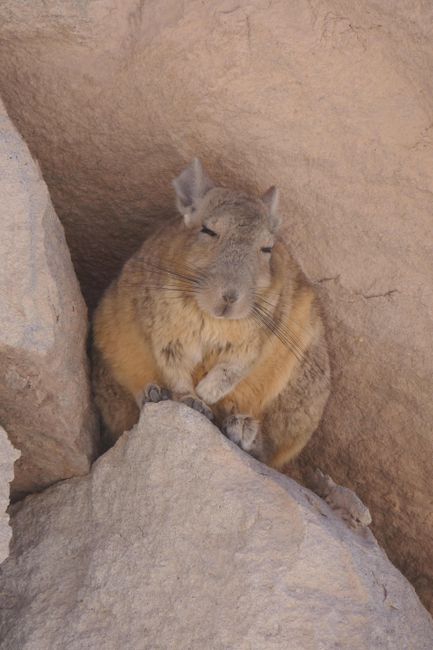
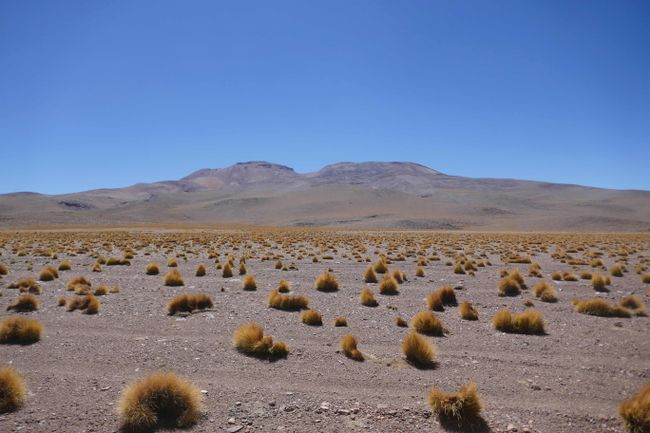
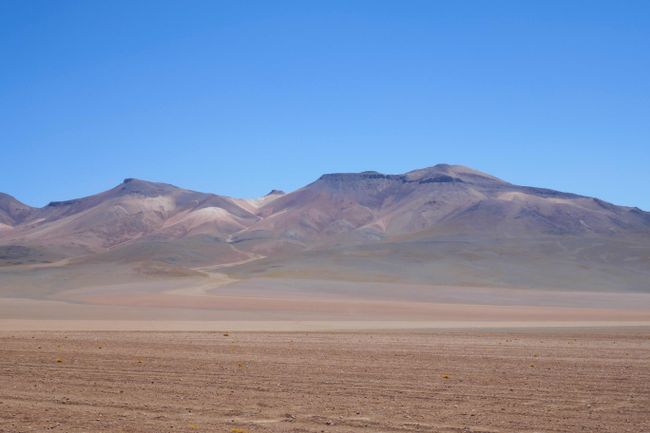
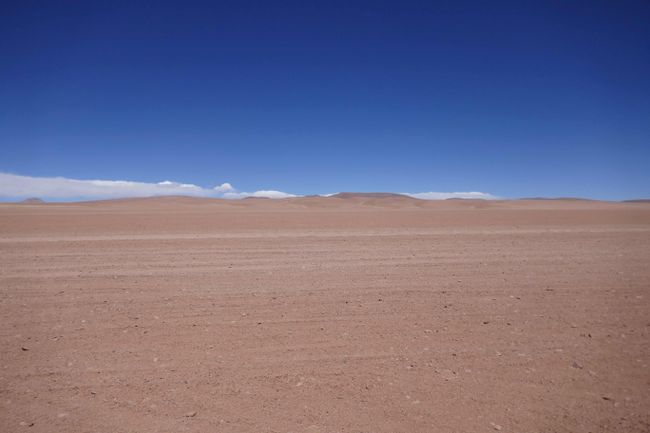
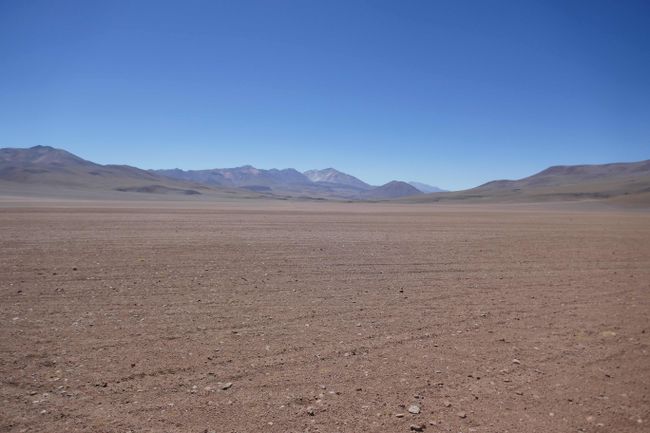
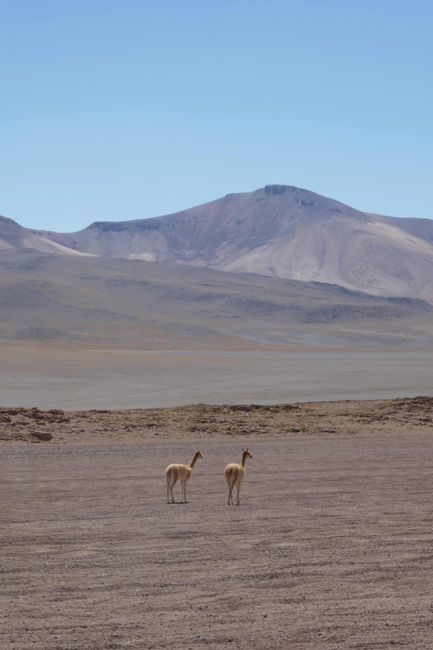
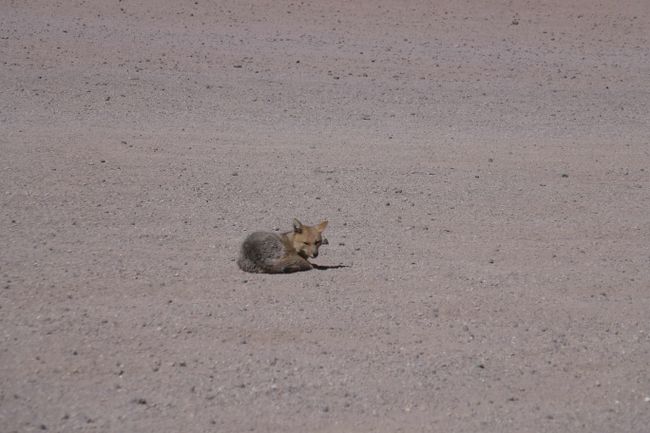
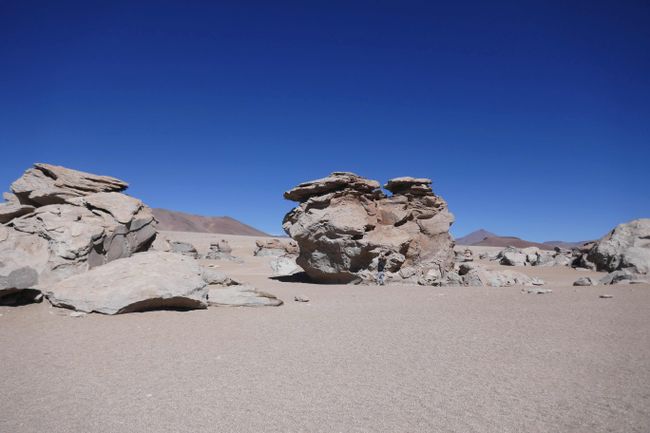
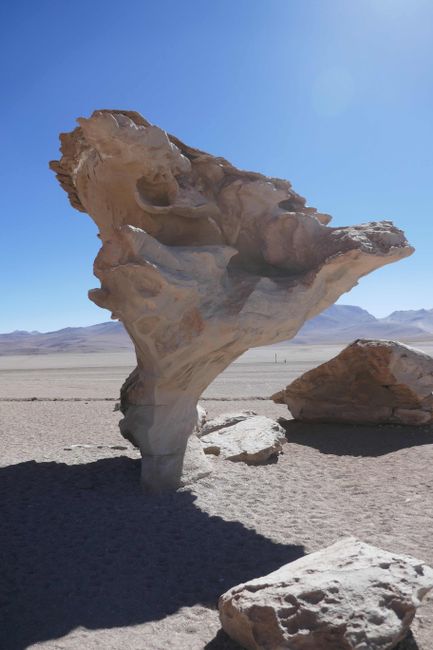
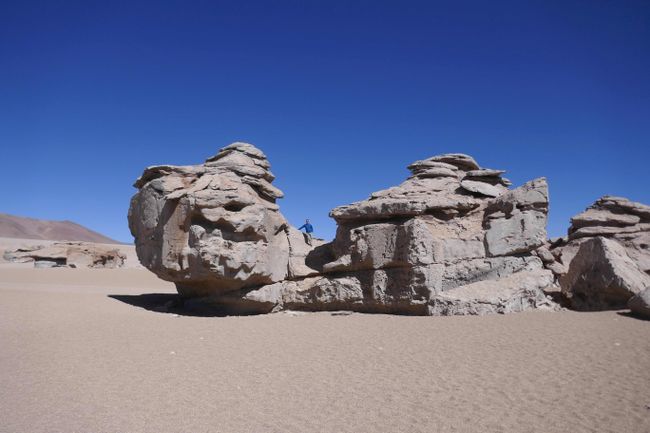
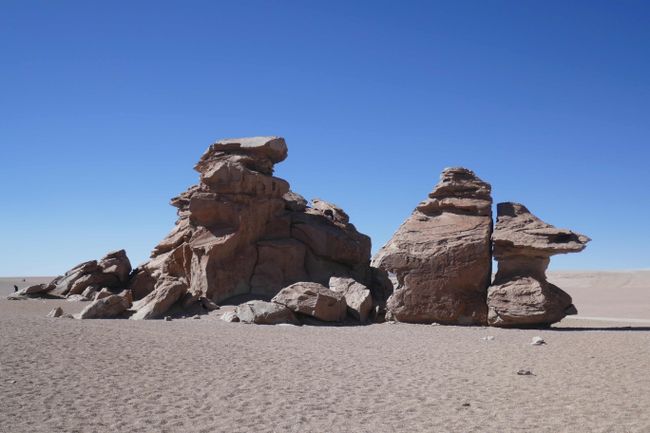
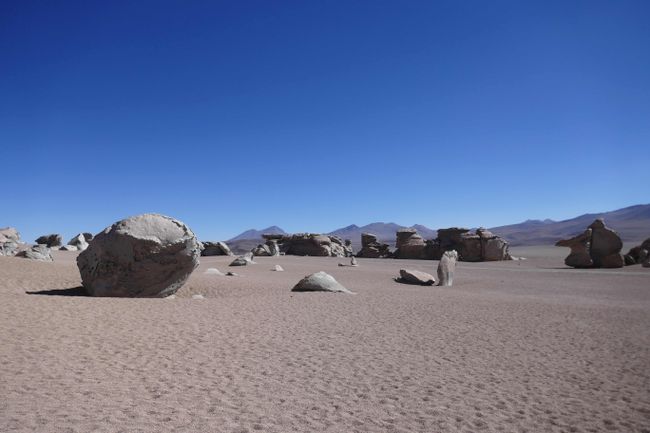

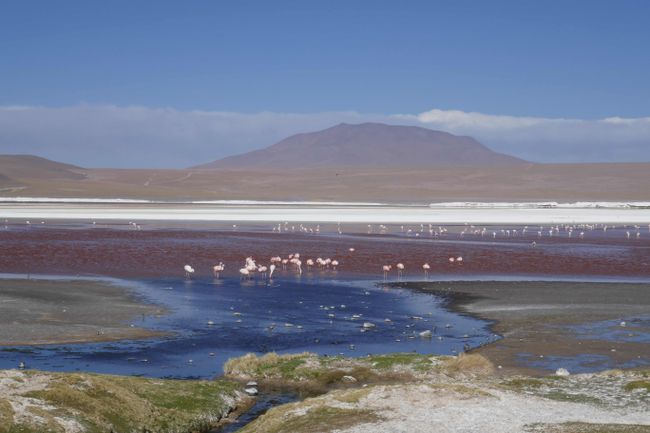
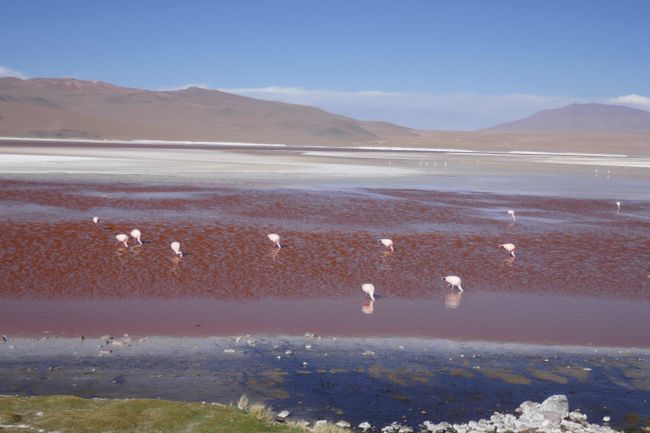
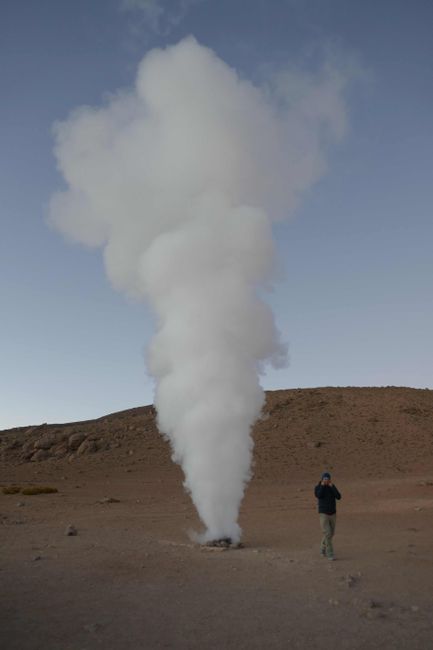
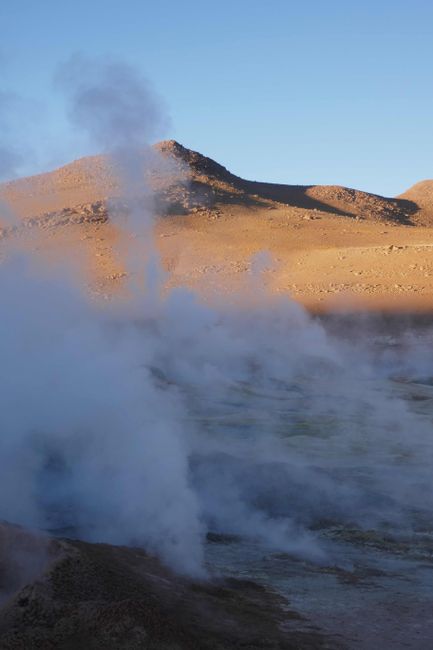
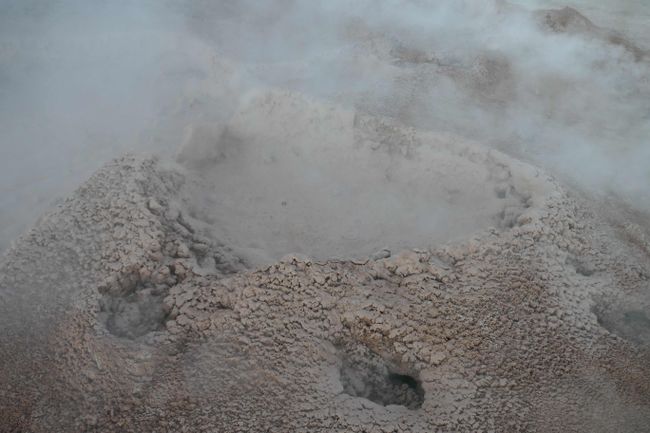
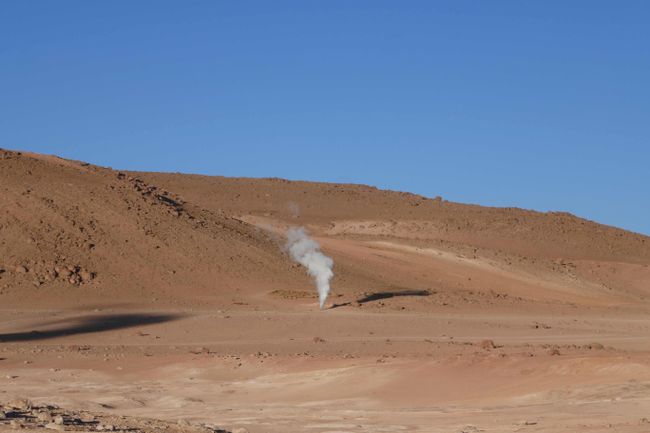
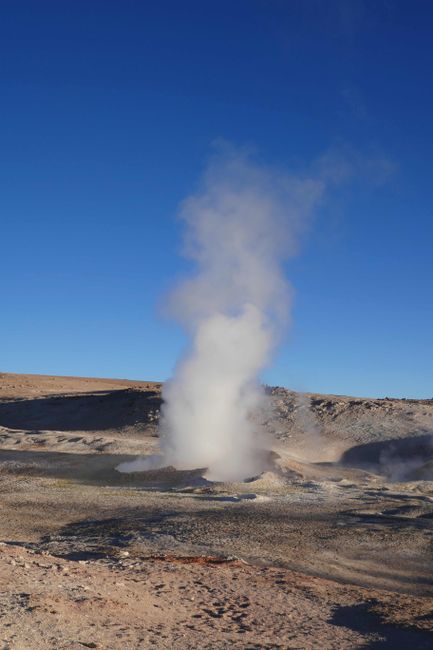
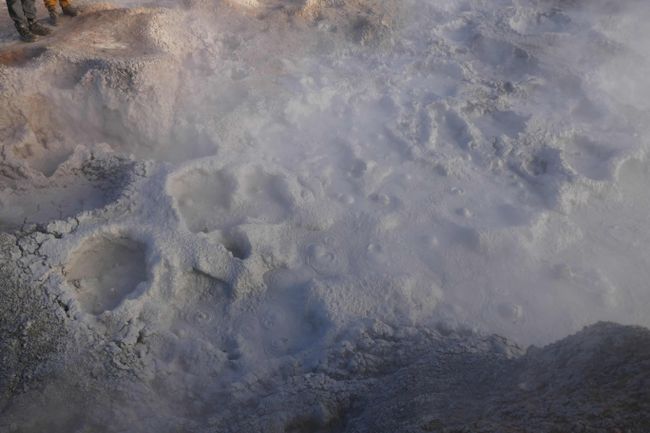
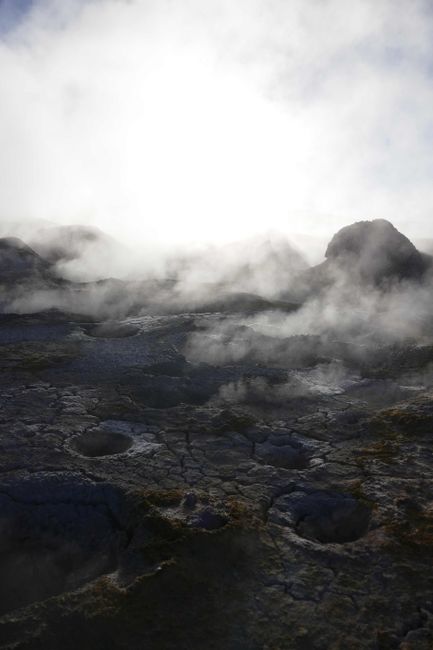
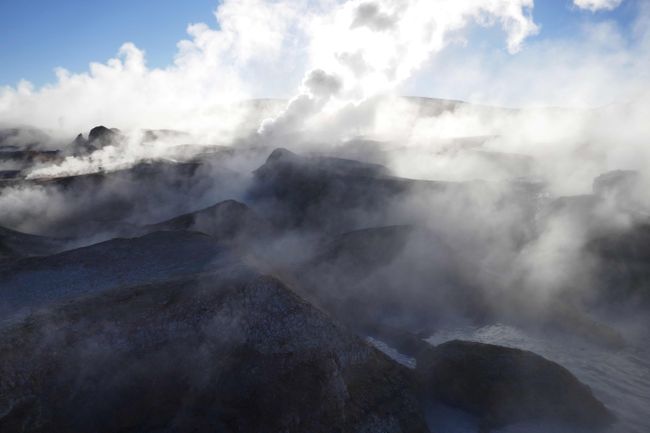
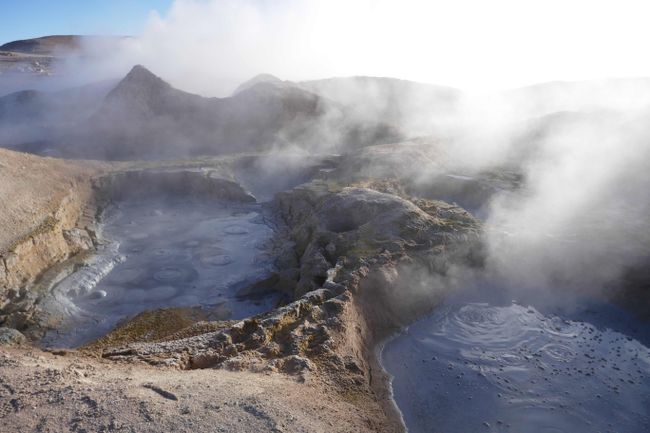
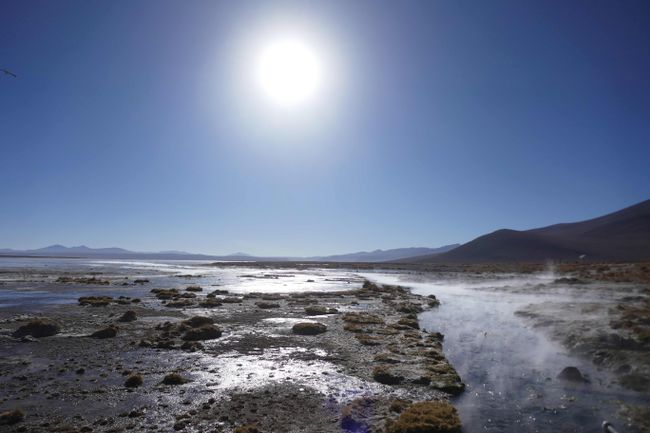
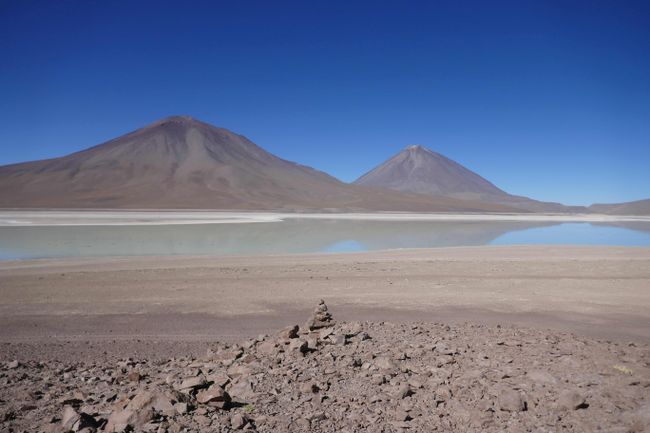
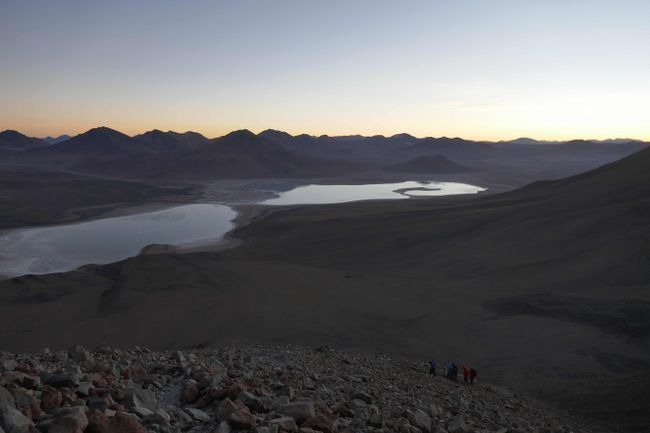
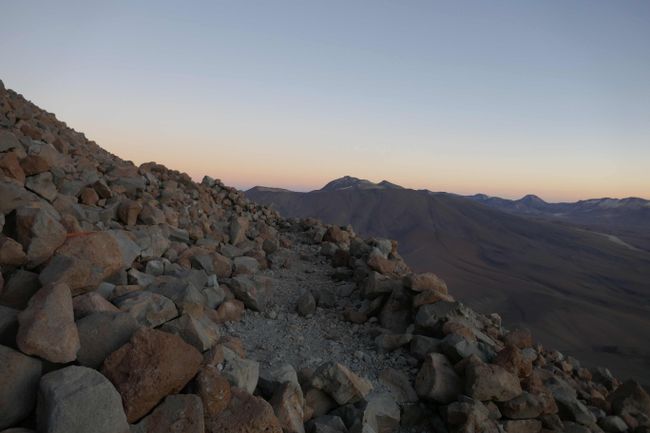
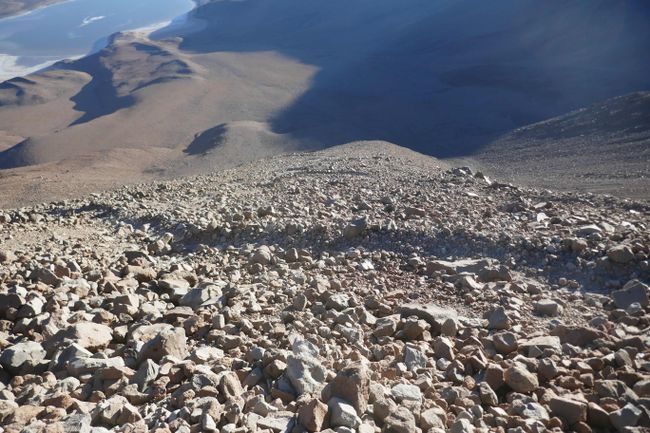
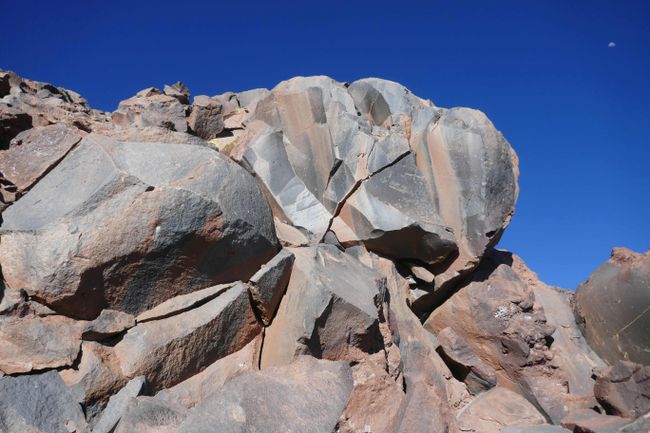
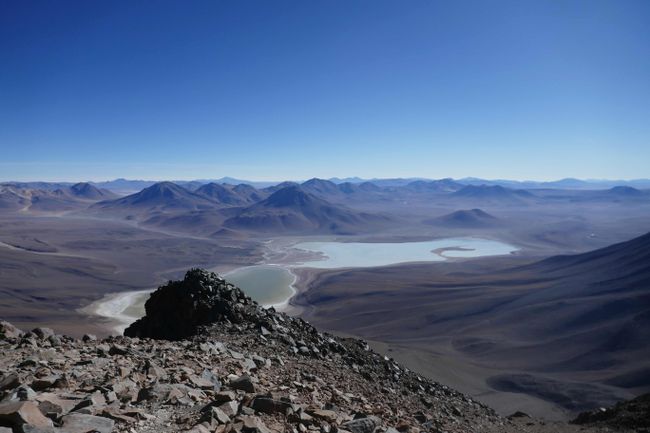
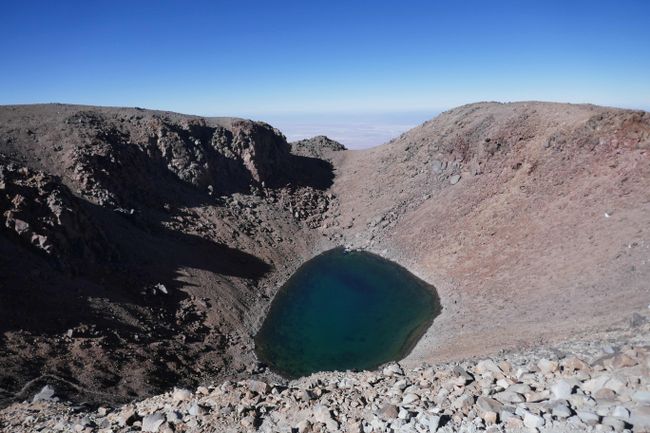
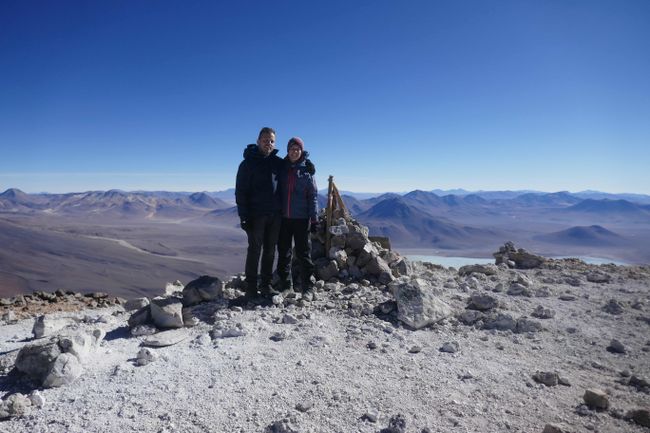
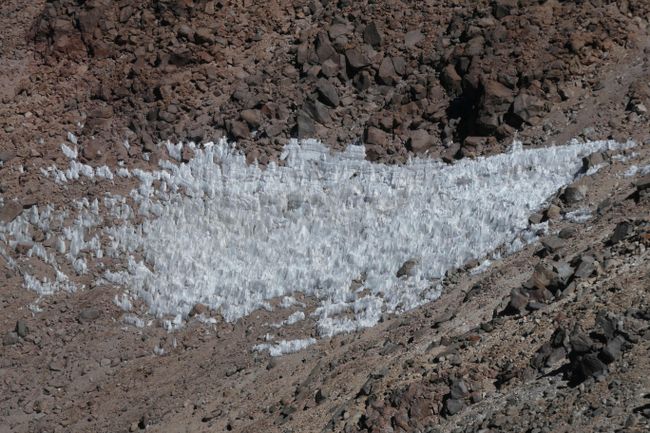
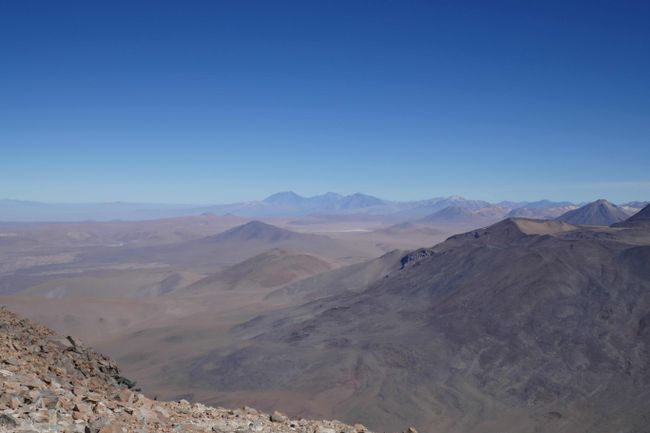
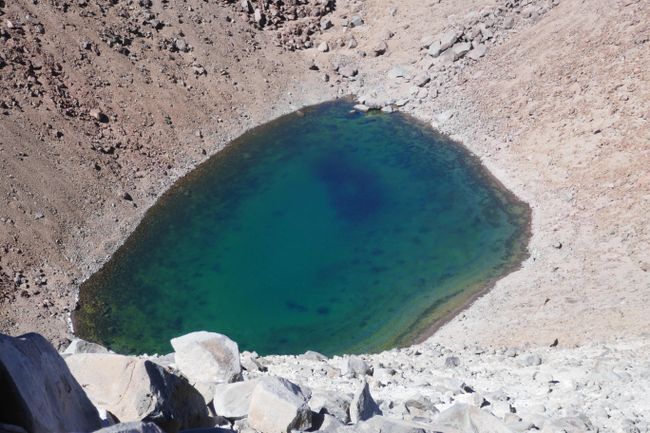
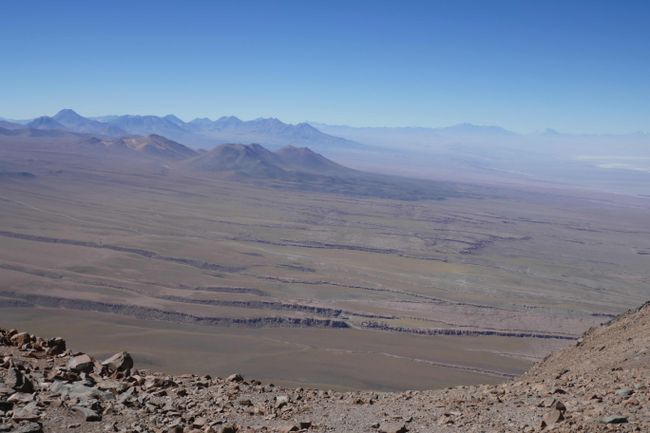
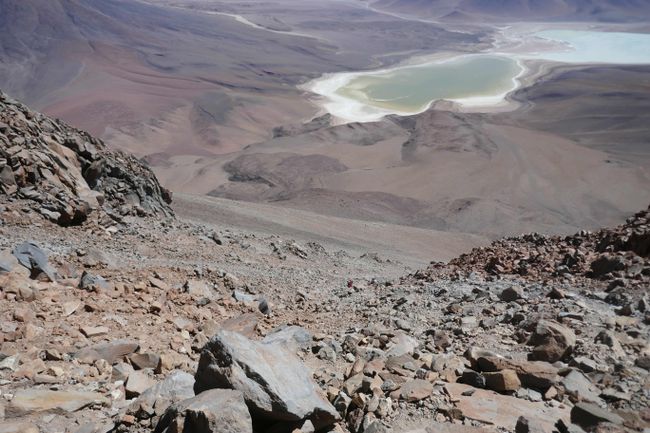
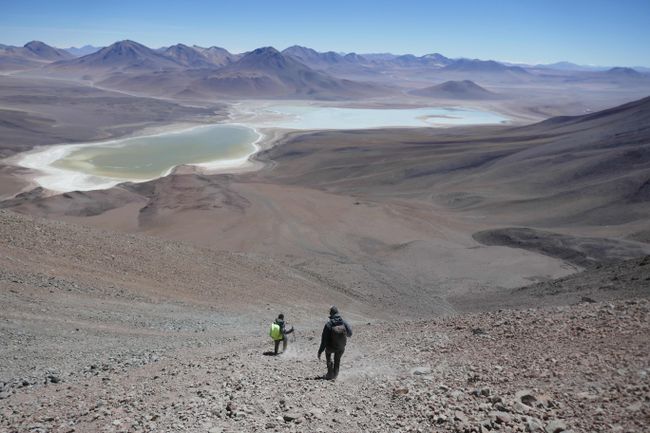
ຈອງຈົດຫມາຍຂ່າວ
Visiting the Salar de Uyuni, the lakes and deserts of the Altiplano, with flamingos, llamas, and vicuñas in the southern highlands of Bolivia, was one of my great, long-standing desires when we started our journey. So, I was relieved when Bolivia calmed down and nothing stood in the way of our plan anymore.
And it was truly fantastic. We drove through the desert for two and a half days in a 4x4 vehicle, and it was the most entertaining car ride I've ever had! I looked out the window and marveled at the constantly changing landscapes. The geysers particularly impressed me. I found it overwhelming how the brute force of the Earth's interior emerges here in a tiny form and yet demonstrates such immense power for us. It steams, hisses, boils, and spits everywhere - you'd think the whole plain is about to explode! And I liked the boiling mud and the landscape of the curved, perforated, colored, steaming surface of the earth.
Naturally, the flamingos and the incredible starry sky were other highlights.
At the southernmost point, near the Laguna Verde and the border crossing to Chile, stands the (inactive) Licancabur Volcano. We wanted to climb it and stayed at the lodge at the border crossing for two more nights.
The climb started at 3:15 a.m. at around 4,650 meters. It was freezing cold! I wore long underwear, trekking pants, and rain pants, and still had icy thighs. Although we were well acclimatized, it was still more difficult to walk at this altitude. The terrain was quite challenging; sand, gravel, rocks. Nevertheless, the first few hours passed relatively quickly, and I was also amazed at how well we were making progress. With the light came the magnificent view after three hours!
We walked at a slow, steady pace, and because the volcano is quite steep, we gained altitude quickly. At around 5,600 meters, it started to become noticeably more strenuous, the heart beating as fast as if you were jogging, and panting and panting. That's when we also had to take frequent breaks, just to catch our breath and get enough oxygen supply.
We both felt that our balance was not quite as perfect as in ordinary high-altitude places, and there was a slight fog in our heads or, as Simon found, a very slight buzz. But we were spared from nausea and other similar severe symptoms.
We reached the summit after nearly 6 hours. Both the summit with the crater, the crater lake, and the icicles, as well as the view itself, were so beautiful that we stayed for a whole hour.
The descent was initially fun because we descended through a very steep sand and gravel chute - it was so soft, as if walking through fresh snow. We could almost run with large steps. But the flatter it got and the larger the rocks, the more difficult it became. In addition, the sand dust was sticking to our palate, ears, and clothes by now. And on top of that, we were both hit by altitude headache. After about eight hours, we were exhausted, completely dusty, and overjoyed to be back at the car.
ຈອງຈົດຫມາຍຂ່າວ
ຄໍາຕອບ
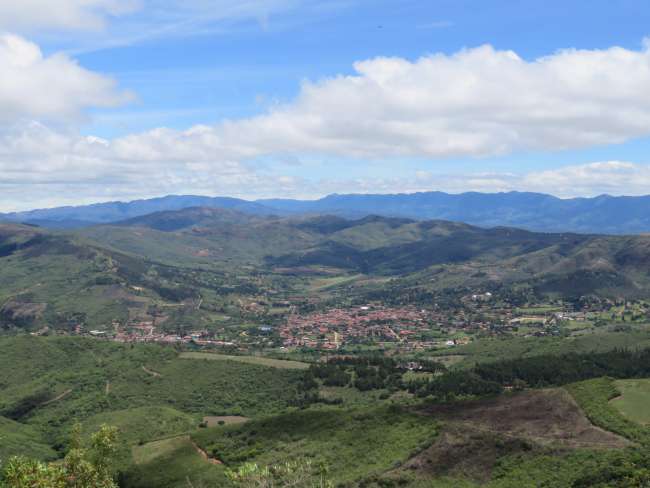
ລາຍງານການເດີນທາງ ໂບລິເວຍ
